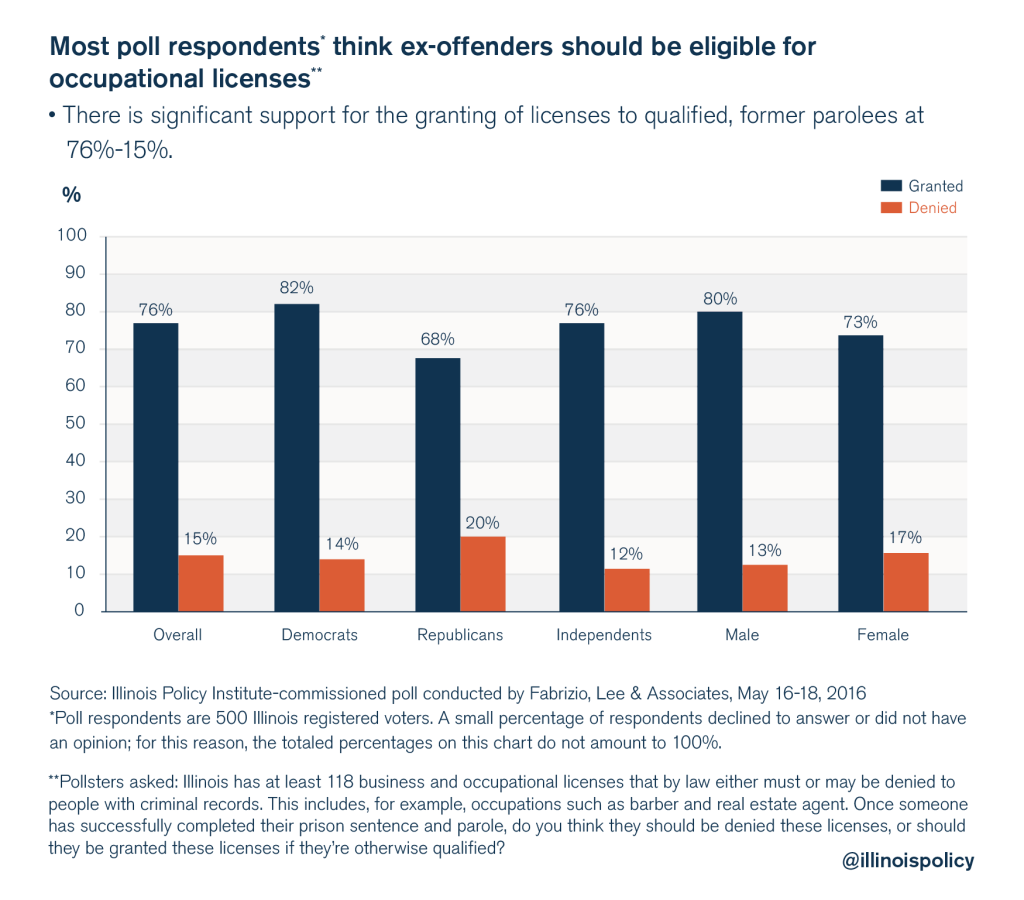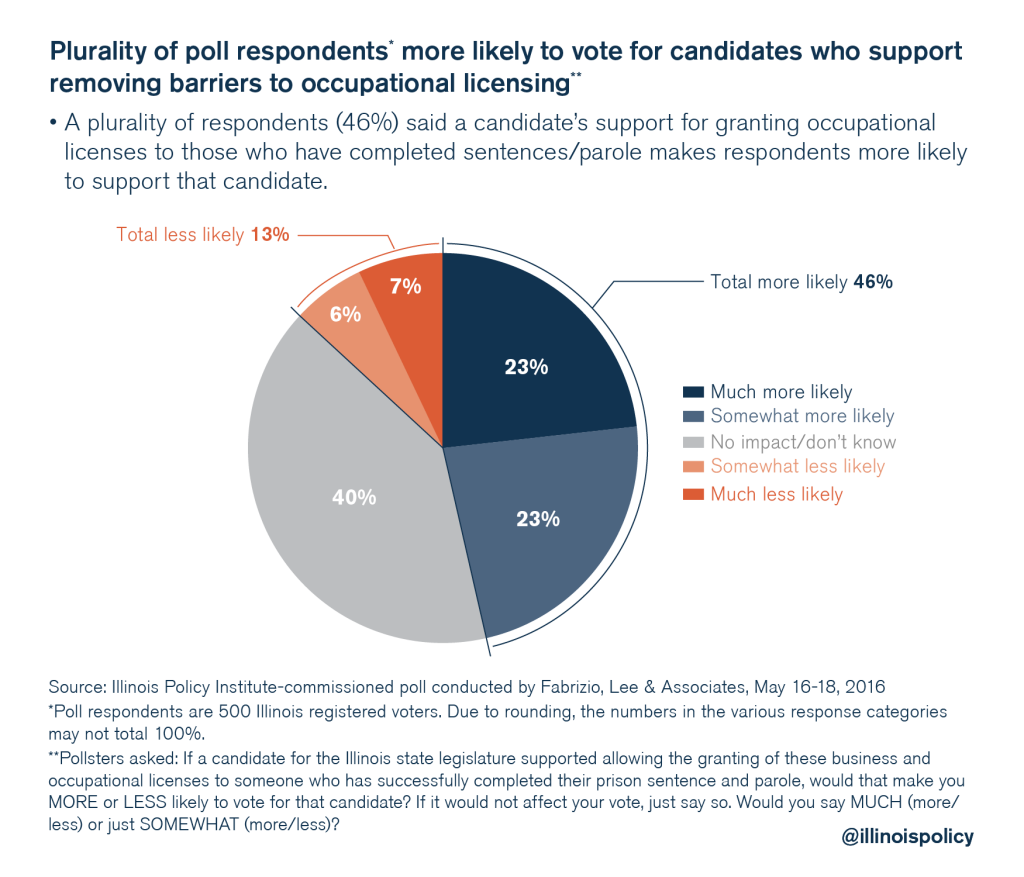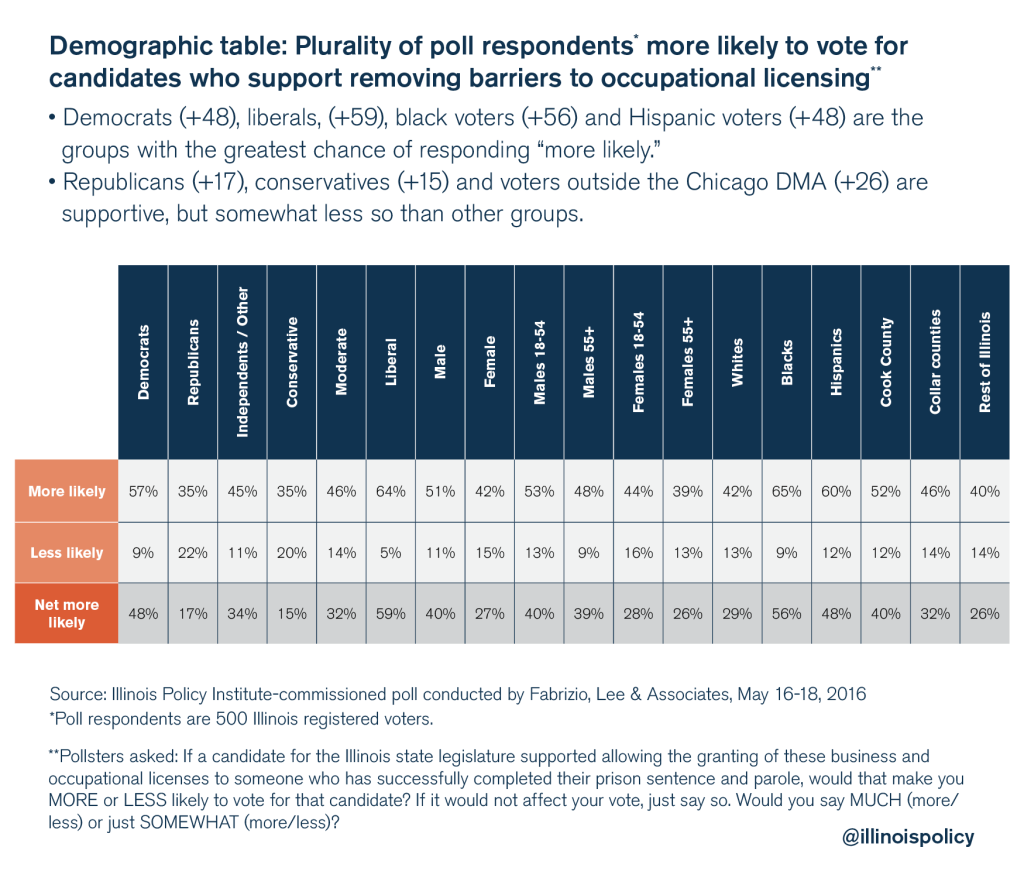Illinois voters support removing licensing restrictions for ex-offenders
A poll of Illinois registered voters finds 76 percent want to remove occupational licensing barriers for ex-offenders.
Each year, more than 30,000 people are released from Illinois prisons and face the challenge of re-entering society. The surest way for ex-offenders to get their lives back on track – and not return to prison – is to find a good job. One barrier in the way of successful workforce re-entry, however, is the fact that Illinois has 118 occupational and professional licenses that by law can be denied – and in some cases must be denied – to people with criminal records.
A majority of Illinois registered voters oppose these restrictions, as shown by a May 2016 poll the Illinois Policy Institute commissioned. Pollsters surveyed 500 Illinois registered voters about criminal-justice reform issues, including occupational licensing. Pollsters asked respondents:
Illinois has at least 118 business and occupational licenses that by law either must or may be denied to people with criminal records. This includes, for example, occupations such as barber and real estate agent. Once someone has successfully completed their prison sentence and parole, do you think they should be denied these licenses, or should they be granted these licenses if they’re otherwise qualified?
Seventy-six percent of respondents say they should be granted – compared to just 15 percent who disagree.

These majorities hold across party lines as well: 82 percent of Democrats, 68 percent of Republicans and 76 percent of Independents support removing licensing barriers for otherwise qualified former offenders.
Pollsters also asked how support for reforming occupational licensing would factor into a voter’s support for political candidates and found that a plurality would be more likely to vote for candidates who back this reform.

Voters in the black and Hispanic communities are the most likely to vote for candidates who expand opportunities to work, but all demographic groups were more likely to support candidates who favor occupational licensing reform.

Licensing reform is low-hanging fruit in criminal-justice reform but can make a world of difference for many. The easier it is to find work after incarceration, the less likely it is that former offenders will return to crime after release. One of the best predictors of success after prison is the ability to find work. Studies by the Urban Institute and the Safer Foundation show that ex-offenders who get jobs after release are less likely to commit crimes in the future and are more likely to be self-sufficient, contributing members of society.
And even if it won’t fully solve the problem of recidivism, marginal improvements can add up over time.
A reduction in recidivism of just 1 percent would save Illinois over $108 million in taxpayer spending, victimization costs and avoided economic loses.
Illinois voters are saying they want big changes in criminal justice. Removing licensing barriers is a small but important way to move the state forward.
